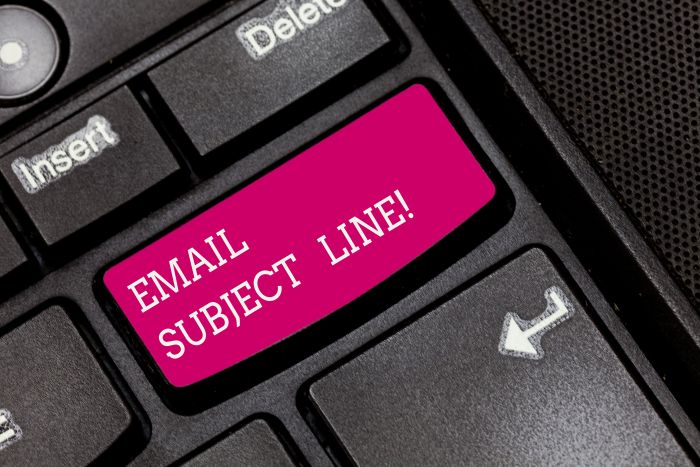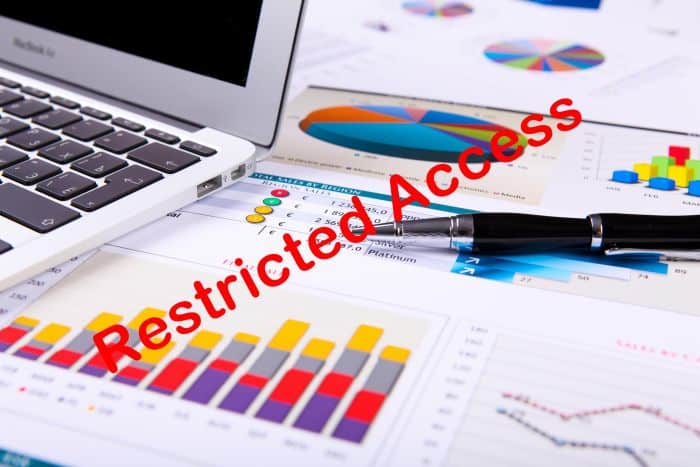One of my biggest frustrations about work is when people don’t use proper email subject lines or email titles.
The email subject line matters. A lot.
When I read a vague email subject line, I think “Does that nondescript email matter to me?” I don’t know what it is about, so I will probably ignore it until I get through the emails that I do recognise. (Unless it is directly from my boss. I read those first of course, well, if he reads this then that is my claim).
I use Microsoft Outlook (like many people in the corporate world). My inbox displays the name of the sender, the email subject line / title, and part of the first sentence of the message. That first part of the message is often nowadays a disclaimer, safety notice, or recognition of a social cause, so it often doesn’t tell me anything about the real content of the email.
Yet some people send emails with subject lines such as “For Discussion” or “Help with this please”.
Those titles don’t tell me what project it is about, what the topic is, or anything that is useful to make me read it as a priority. In fact, if I see an email subject line like that, I will probably read it as a much lower priority than a title that says “Smith St Building Project – Construction Delay”. If I am the project manager on that Smith Street building, I can see from that subject line that the message is relevant to me and that I should read it.
It is even worse when I am just copied on an email. I may not read it at all if the subject line doesn’t inform me of the topic straight away.
Some of the links on this website may be affiliate links to products I use, have tested or am familiar with. I may receive a commission if you click on some of those links and make a purchase. This is at no additional cost to you.
I have colleagues (and I sometimes do this too when I am very busy) who set their inbox filters to automatically move emails that they are CC’d on to a separate “Read Later” folder. They also set filters so that emails with certain project names or project numbers get flagged as important. They receive so many emails that they cannot read them all, so they prioritise the emails and read the flagged emails first, emails with informative subject lines second, CC’d emails next (if the subject line is relevant to them), and then they may read the emails with an uninformative subject line (if at all). They read all the emails from me of course (or at least I like to think so), but if I am also lazy and don’t put in a good email subject line, then they probably don’t.
Problem: Your emails don’t get read
Many people in the business world get a lot of emails. So many emails that they need to prioritise which ones they read.
If the email subject line doesn’t tell them exactly what the email is about, they may ignore the email, or file it for later reading (which they may or may not get to).
Sometimes the email subject line may be something like “Meeting”, or “For discussion”, or “Fix this now”. Unless people are not busy, they are unlikely to be motivated to read an email with a subject line like that. They don’t have time to waste in having to open the email and read some of it to work out what the topic actually is.
Those titles are nearly useless, and certainly useless once some days or weeks have elapsed.
A blank subject line is even worse. Those will often get blocked by a spam filter or just deleted immediately. All caps, emoji’s, lots of exclamation marks etc. also serve no useful purpose and will often get ignored, spam filtered or deleted. (On that topic, see a good list of things to avoid in your email subject line by Amanda Patterson).
Many busy and efficient people set filters on their email inbox. They get so many emails that they filter them for high priority to low priority reading (read my post on filtering your emails). Some people flag emails with certain key project names or numbers to be read first and most or all other emails may get relegated to being read later or never. Their reading order may be something like:
- First – flagged emails (emails with key project names or numbers, or following a set title)
- Second – Emails with clear subject lines
- Third – Emails addressed to them only
- Fourth – Emails they are only copied on
- Last (and possibly never) – Emails with vague or irrelevant subject lines
Solution: Use informative email subject lines
Email subject lines matter.
You should use informative email subject lines (email titles) that tell the reader, in as few words as possible, what the email is about and why they should read it.
An email title like “City Mall Renovation Project – Safety Workshop Minutes” is far better than a subject line of “Minutes”. (Minutes from which meeting? I am in lots of meetings, so I don’t know which meeting that is about).
The first person in the email chain (i.e. the writer of the first email) is the person who should ensure they use a good email subject line.
When you write the first email, make sure the title is descriptive enough so that people know what is being discussed. If you are the person replying to or forwarding the email, and it has a useless title (e.g. “for discussion”), change the title to be descriptive (e.g. “Building 576 construction, foundation issues”).
A proper email subject line allows the readers to know whether they should keep reading, and also makes searching for that email later much easier.
If you are senior enough in your company, or if you are the project manager on a project with a dedicated team, I recommend that you direct all your staff or team to use proper email subject lines. An easy way to do that is to inform everyone that you normally ignore any email which doesn’t inform you of the topic clearly in the subject line, and that you only read those unclear emails if you have time (if ever). I suggest that you recommend everyone else do the same.
I have delivered projects for clients who specified that all email communication with them on that project must start the email with “Project Number – Project Title – Issue/RFI/Deliverable Number – Issue title”.
The resulting email subject line would be something like “Project 23WCC07 – Smith Dam Upgrade – RFI 37 – Access Road Requirements”. It may have felt cumbersome at first, but later in the projects (especially in the large projects where there were thousands of emails) it made finding and referring to key pieces of information much easier. Of course you should still keep a register of RFI’s, project scope or design changes etc, preferably in a good change management system.
Lesson: Ensure people read your emails by using good email subject lines
People don’t have time to waste. People working on your projects should especially not be wasting time. Wasting time increases project costs and schedule.
Good, informative email subject lines (email titles) are an important method to reduce wasted time.
Make sure you use clear but concise email subject lines. Encourage (or require) your project teams to do the same. I also think that if you are forwarding or replying to an email that doesn’t have a clear subject line, that you should change it to be more useful (especially if that email chain is going to continue further).



